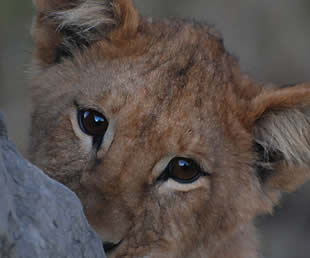News
Lions in trouble: a collaboration between WildCRU and some of the world’s leading authorities on lions suggests half of lion populations have been lost from key regions of Africa
David Macdonald explains how a WildCRU team led by Hans Bauer and including Craig Packer and himself, joined with experts from Panthera, IUCN and the Grimso research station to study trends in lion numbers. Their projections are published in Proceedings of the National Academy of Sciences of the United States of America (PNAS at http://www.pnas.org/content/early/2015/10/21/1500664112), and suggest lions in West and central Africa are likely to decline a further 50% in the next two decades without a major conservation effort. Lion numbers are also declining, albeit less dramatically, in East Africa, long considered the main stronghold of the species. The study also shows that almost all lion populations that historically numbered at least 500 individuals are in decline.The team analyzed regional population trends for 47 different lion populations across Africa. The analysis showed that whereas most lion populations in West, Central, and East Africa are declining, increases in lion populations occurred in four southern countries: Botswana, Namibia, South Africa and Zimbabwe. Based on the data, the authors recommend that the lion be regionally uplisted to Endangered in Central and East Africa while populations in southern Africa meet the criteria for ‘Least Concern.’
It might seem beyond belief that a creature as iconic as the lion could be tumbling towards extinction in so many areas, but surely this startling fact emphasizes the depth of the crisis in wildlife conservation: if we can’t save lions, what on earth can we save? If any group of species is going to mobilise public opinion in support of conservation, surely it is the charismatic cats, with lions as their figurehead.
The strength of this study comes from the powerful collaboration by outstanding international teams, WildCRU, Panthera, the IUCN, the Grimso research station and University of Minnesota – these are world experts, and if they are worried about lions, everybody should be.
BBC article: http://www.bbc.co.uk/news/world-africa-34657027






